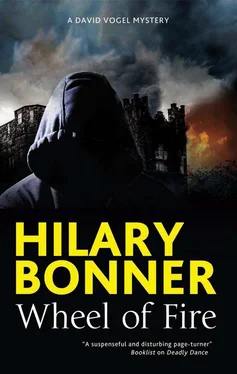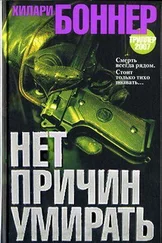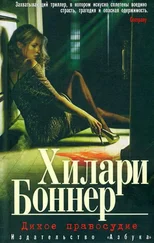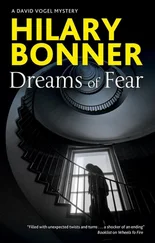‘Yes, but he was Chair and CEO of Fairbrother International, for God’s sake, so he had good reason to try to hide his illness for as long as possible, didn’t he? Perhaps Jack and Martha got a little too close, do you think? Started to take things for granted, maybe?’
‘I don’t know about that,’ replied Dawson. ‘But it was always said they more or less ran the manor, and that nothing went on there without their say so.’
‘Is it possible that maybe Sir John got rid of them because he didn’t want anybody knowing so much about his affairs?’ asked Saslow.
‘If that’s so then it’s odd that it seemed to suit him so well for so long, isn’t it?’ commented Dawson. ‘The Kivels and the Fairbrothers were always considered to be joined at the hip. The kids grew up together. I can only think that something must have happened. Something to make Sir John no longer want that. Something more than being ill, I reckon. You see, from what I know of the set up with the two families, Sir John would have trusted the Kivels to keep his illness a secret. None more, I’d have thought.’
‘So, we have a bit of a mystery then, don’t we,’ remarked Vogel. ‘A mystery that’s been the subject of local gossip in the pubs of this corner of Devon and Somerset for the best part of a year now.’
‘Yes, that’s about the size of it,’ agreed Dawson. ‘But everyone likes a nice conspiracy theory, don’t they?’
Vogel walked a little closer to the still burning house, his inadequate footwear making squelching noises in the sodden ground. Dawson and Saslow followed.
‘Anything of any substance other than the rumours about Sir John’s health?’ he asked over his shoulder.
‘Well, there was always the inevitable theory that financial skulduggery is at the root of it all. But that wouldn’t explain why Sir John cut himself off from the community here, and everyone who had previously been close to him, would it?’
‘Did he no longer have contact with anybody locally?’
‘Only the absolute minimum. From the moment he got rid of the Kivels and moved in the Greys. That’s when everything changed. He was seen every so often being driven about by George Grey. And there were still one or two indispensables who were required for occasional visits. So he did have some contact.’
Dawson glanced towards the ruined house with a sorrowful shake of his head.
‘Or he did, until the early hours of this morning. But apparently, he did his best to avoid it. Paul the Pool, as he’s known around here, Paul Preston Evans, was one of the last to see him alive. He goes there every month to look after the swimming pool...’ Dawson paused. ‘Used to go there, I should say. The pool was in the basement. Ton of charcoal in it now, I should think. Anyway, Paul likes nothing better than passing on a good yarn. Sir John was in the pool when Paul arrived. Paul got a bollocking from Janice Grey. Apparently neither of them knew he was in the house. He’d just walked in through the back door, like he always did, he told ’em up the Blue Ball. And Mrs Grey sent him packing so she could help Sir John out of the pool room. But Paul said he’d been shocked to see how frail Sir John had looked. And it backed up the rumours. He was a proud man, of course, he wouldn’t have wanted people to see him looking infirm. Everyone understood that, but nobody understood why he got rid of the Kivels. They would have protected him with their lives, would Jack and Martha.’
‘What about Sir John’s family? There are children, aren’t there? Maybe he planned to rely on them for help as his condition deteriorated.’
‘I doubt it,’ responded Dawson. ‘He had two kids, girl and a boy, who grew up here at Blackdown Manor, alongside Jack and Martha’s boys, like I said, but the word is Sir John was estranged from both of them. The lad was a bit on the wild side and buggered off abroad years ago. Not been seen around these parts since. The daughter and her father used to be close, I understand, but not anymore, allegedly.’
The DI looked around him, again taking in the whole dreadful scene. Just a skeleton of the outer structure of the house remained. It was impossible to imagine that it would ever be rebuilt. He may not have visited Blackdown Manor before, but he had that morning looked at pictures of the place. It had been a stunningly beautiful old house, steeped in history, one of the finest examples in the country of a medieval manor, dating back to the fifteenth century and the reign of Henry VII, the first Tudor king of England. An even greater loss, of course, was that of two lives. Two people who had no doubt suffered awful deaths.
Vogel didn’t like to think about that, but couldn’t help himself. He glanced up at the sky, seeking diversion. The storm might be over, but it remained a thoroughly unpleasant morning. He felt sure he’d just felt a drop of rain. Unless he’d attracted the attention of a passing bird. All those years in central London, mostly based in a police station adjacent to Trafalgar Square, and he didn’t remember once being hit by the excrement of a pigeon. In the country, and to Vogel even the thoroughly modern and cosmopolitan city of Bristol counted as country because it wasn’t London, he seemed to be regularly wiping chalky droppings from his head and shoulders. That’s how it seemed to him, anyway.
He took his phone from his pocket and called his senior officer, Detective Superintendent Reg Hemmings, the head of the Brunel MCIT.
‘We almost certainly have a case of arson on our hands,’ said Vogel, before giving Hemmings a brief rundown of everything he had so far learned concerning the fire.
Hemmings listened carefully.
‘There’s little doubt then, we need to set up a murder inquiry,’ he said eventually.
‘Yes boss,’ responded Vogel. ‘And we need a full rundown on the Fairbrother family and the family business, as soon as possible; everything that’s known about Sir John’s children, and everything we can find out about the bank, its financial history, its status today, and so on. Can we get a team to give this top priority? Two people have died in mysterious circumstances, boss. If we can work out why they were killed, then, with a bit of luck, we’ll be well on the way towards identifying those responsible.’
Only when the call ended did Vogel realise how much more confident he must have sounded than he felt. This was not going to be a straightforward investigation. All he could do was take it stage by stage.
He turned to Saslow.
‘Right, Dawn,’ he said. ‘We’d better get ourselves over to the Musgrove and see if we can have a word with George Grey.’
Grey was awake and sitting propped up against the pillows of his curtained hospital bed when Vogel and Saslow were shown into his ward at Taunton’s Musgrove Park hospital. His eyes were red rimmed, and his distress obvious. His right shoulder bore a heavy dressing and there was a cradle keeping the bedding from resting on his left leg.
But Grey was in a far better condition than Vogel had expected, given the description of his condition by senior fire officer Bob Parsons, a man obviously not unfamiliar with serious injury.
The ward sister who escorted Vogel and Saslow to Grey’s bed had confirmed that his injuries were stab wounds of some sort, but that they had not turned out to be as severe as at first feared.
She also promised to find the casualty doctor who had treated Grey. He might, she suggested, be able to explain further.
Vogel introduced himself to the injured man and sat down on a chair to the left of his bed. Saslow remained standing, to the right.
George Grey was probably in his early forties, Vogel judged. He had dark curly hair, vibrant blue eyes, and full sensual lips — an unusual looking man who might have been considered classically handsome were it not for a somewhat sallow complexion and a crooked nose that had probably been rather badly broken at some stage.
Читать дальше












